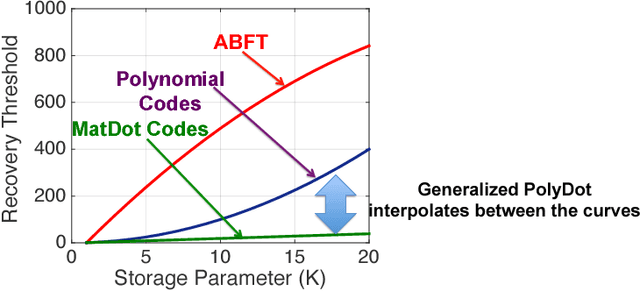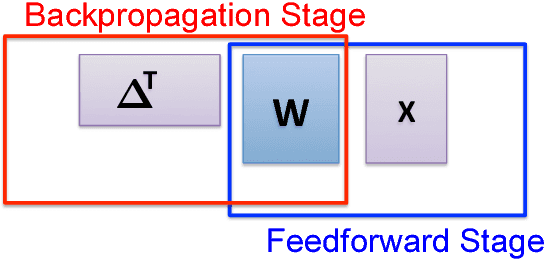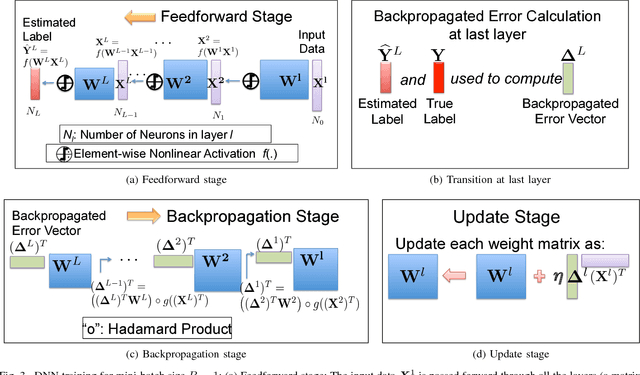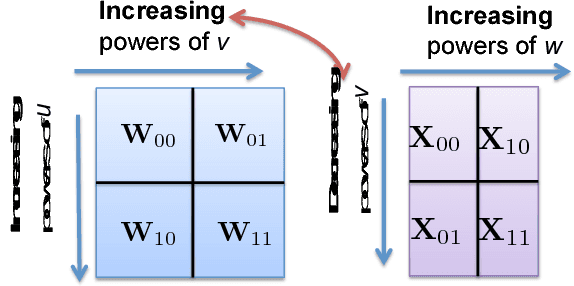A Unified Coded Deep Neural Network Training Strategy Based on Generalized PolyDot Codes for Matrix Multiplication
Paper and Code
Nov 27, 2018



This paper has two contributions. First, we propose a novel coded matrix multiplication technique called Generalized PolyDot codes that advances on existing methods for coded matrix multiplication under storage and communication constraints. This technique uses "garbage alignment," i.e., aligning computations in coded computing that are not a part of the desired output. Generalized PolyDot codes bridge between Polynomial codes and MatDot codes, trading off between recovery threshold and communication costs. Second, we demonstrate that Generalized PolyDot can be used for training large Deep Neural Networks (DNNs) on unreliable nodes prone to soft-errors. This requires us to address three additional challenges: (i) prohibitively large overhead of coding the weight matrices in each layer of the DNN at each iteration; (ii) nonlinear operations during training, which are incompatible with linear coding; and (iii) not assuming presence of an error-free master node, requiring us to architect a fully decentralized implementation without any "single point of failure." We allow all primary DNN training steps, namely, matrix multiplication, nonlinear activation, Hadamard product, and update steps as well as the encoding/decoding to be error-prone. We consider the case of mini-batch size $B=1$, as well as $B>1$, leveraging coded matrix-vector products, and matrix-matrix products respectively. The problem of DNN training under soft-errors also motivates an interesting, probabilistic error model under which a real number $(P,Q)$ MDS code is shown to correct $P-Q-1$ errors with probability $1$ as compared to $\lfloor \frac{P-Q}{2} \rfloor$ for the more conventional, adversarial error model. We also demonstrate that our proposed strategy can provide unbounded gains in error tolerance over a competing replication strategy and a preliminary MDS-code-based strategy for both these error models.
 Add to Chrome
Add to Chrome Add to Firefox
Add to Firefox Add to Edge
Add to Edge